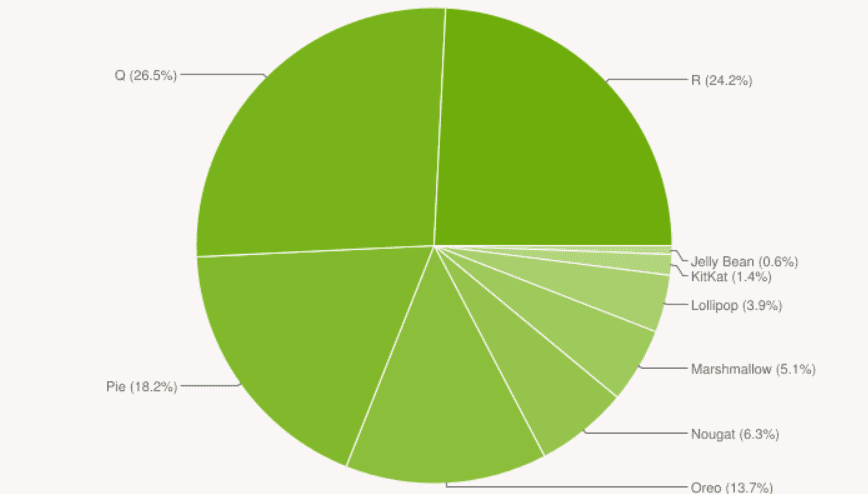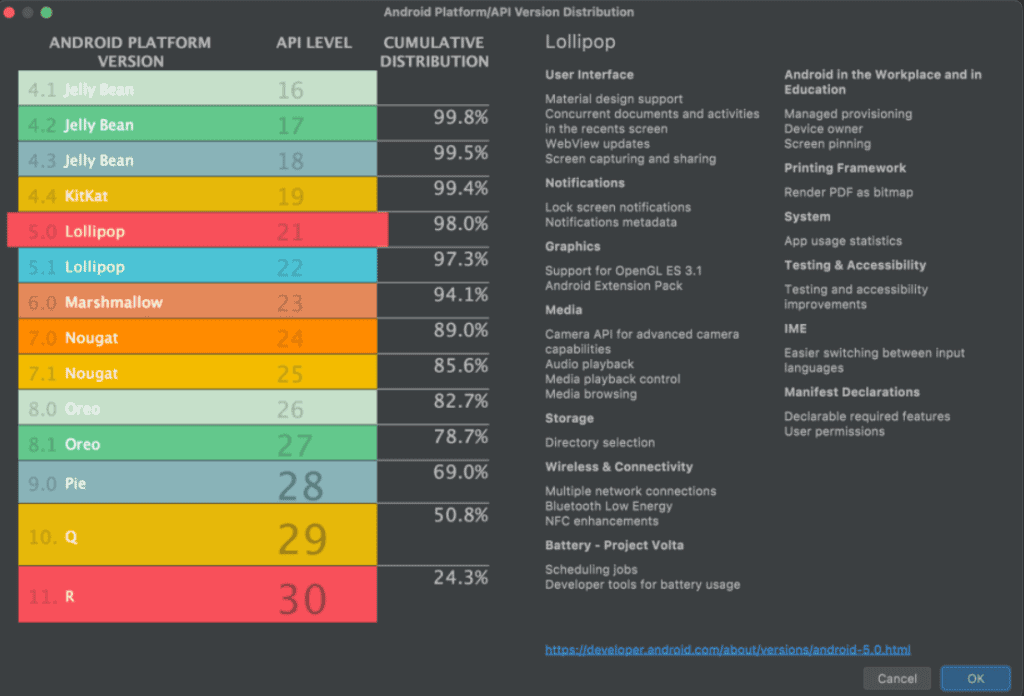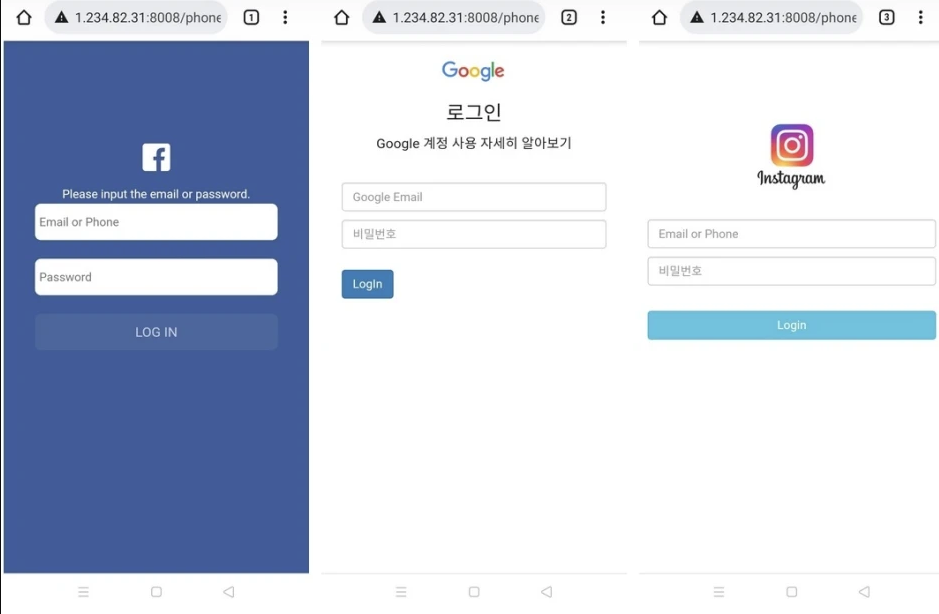At the end of 2018, Google stopped reporting the adoption rate of the Android version every month. However, from the updated data provided in Android Studio, we can still see the latest statistics. This statistical data is used to determine the appropriate version of App development for developers. Since Android 12 was only launched a few weeks ago, there is no statistical data. After the release of Android 11 (R) on September 8, 2020, its current share is 24.2%, ranking second. This leaves the 2019 Android 10 (Q) as the most popular Android system with a share of 26.5%.

- Android 11 R accounts for 24.2%
- Android 10 Q accounts for 26.5%
- Android-9 Pie accounts for 18.2%
- Android 8 Oreo accounts for 13.7%
- Android 7/7.1 Nougat accounts for 6.3%
- Android-6 Marshmallow accounts for 5.1%
- Android 5 Lollipop accounts for 3.9%
- Android 4.4 KitKat accounts for 1.4%
- Android-4 Jelly Bean accounts for 0.6%.
Developers using Android Studio can view the statistics and more detailed information in the guide to create a new project.

Don't install apps casually
A mobile security company, Zimperium recently discovered a piece of phishing software. This phishing software is currently influential mainly in South Korea. The name of this application is PhoneSpy. As of now, thousands of Android users in South Korea are already victims of this phishing software. Furthermore, the criminals behind PhoneSpy can freely access the data, call information, and services on the victim's mobile phone.
Hiding in plain sight
According to Zimperium, PhoneSpy is difficult to track down because it is "Hiding in plain sight". These applications will package themselves into useful looks, such as teaching users how to practice yoga, playing some of your favorite videos, and browsing pictures on the phone. For example, in the picture below, these seemingly real apps and websites are actually phishing software, just thinking about how to steal your login information.

Zimperium said: "In fact, the app is stealing data, messages, and images from Android phones, and can be controlled remotely. The data stolen from the victim's device range from personal privacy photos to company communication records...". After installing PhoneSpy, it can control the camera on the Android phone, record audio and video. The app can also use GPS to obtain the precise location of the device.
According to Zimperium's report, PhoneSpy can do the following:
- View the complete list of applications on the device
- Steal personal passwords through phishing websites
- Steal images
- Monitor GPS location
- Steal text messages
- Steal phone contacts
- Use the front and rear cameras to record video in real-time
- Steal call records
- Record audio in real-time
- Access the camera to take pictures using the front and rear cameras
- Use the phone number to send text messages
- Disclosure of device information (IMEI, brand, device name, Android version)
- Hide its existence by hiding the icon from the drawer/menu of the device






Place comments
0 Comments
You are currently seeing only the comments you are notified about, if you want to see all comments from this post, click the button below.
Show all comments